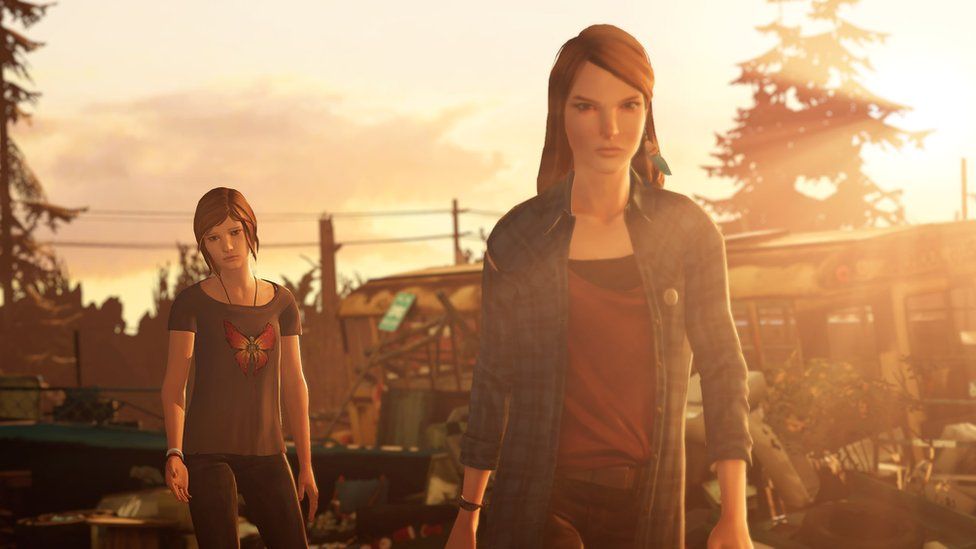Life Is Strange: Before The Storm tackles depression
- Published

Square Enix is seeking to overturn taboos surrounding depression in its game Life is Strange: Before the Storm.
The narrative adventure explores a teenager's issues with grief and loneliness, letting players step into her shoes.
The first episode of the three-part story has just been released.
It is the latest game to seek to destigmatise mental health issues - a topic that some critics believe has been mishandled by many past titles.
Challenging taboos
The new game is a prequel to 2015's award-winning Life Is Strange.
Like its predecessor, it focuses on the social and familial pressures that can affect people as they move from being teenagers into adulthood.
But while the earlier title involved time travel and communicating diplomatically with other characters, Before the Storm takes the opposite approach.
There is no changing the past, and the plot is more about dealing with what is, rather than what could be.
Players take the role of Chloe Price, who is depressed after both the death of her father and her best friend moving away.
Players can answer back in situations, and face the consequences - either the dialogue helps get Chloe out of an unpleasant situation, or it makes matters worse.
"Through her shoes and through her eyes, we can look at what's going on with teenagers today," Zak Garriss, lead writer of the game's developer, Deck 9 Games, told the BBC.
"Mental health is not what we talk a lot about in most cultures. There's a taboo around depression.
"We want to challenge that taboo and say, 'It's OK to not be OK.'"
Bringing hope
Chloe eventually makes another friend - Rachel Amber - who helps her through her pain.
The developers hope the story will inspire people to face painful emotions upfront and open up about how they are feeling.
"[In] the story of Chloe being trapped and being in prison, you can see how everything can change in a blink of an eye," said Mr Garriss.
"When you are really suffering, it feels like you're going to feel that way forever.
"You never know what will change in the blink of an eye, and I think that's the most important thing for people who are struggling with depression and loneliness to remember."
Video games have been criticised in the past for depicting extreme cases of mental illness, often involving homicidal mental asylum inmates, or treating sanity as a kind of depletable resource, as if it was some kind of energy meter needing to be topped up.
However, there have been other notable efforts to deal with the issue in more sympathetic ways.
Often it is smaller-budget fare that has attempted this - past examples include:
- the top-down graphic adventure Actual Sunlight about an overweight man with depression
- the text-based role-playing title Depression Quest, in which the player makes choices about how to handle the condition
- the line-art horror title Neverending Nightmares, which was inspired by its developer's own case of obsessive-compulsive disorder
More recently, Hellblade: Senua's Sacrifice featured a character affected by psychosis.
To help ensure her hallucinations appeared realistic, the title's developers interviewed several mental health patients as well as getting advice from a practising psychiatrist.
Big following
What makes Life Is Strange: Before The Storm notable is that it is being released by one of the industry's biggest publishers.
Square Enix is responsible for hit franchises including Final Fantasy, Dragon Quest and Kingdom Hearts.
But the Japanese company has highlighted that its Life is Strange series has attracted more Twitter followers than its more famous and established brands.
"The traditional way that mental health professionals expect younger people to come to them - that doesn't appeal to them," psychotherapist Dr Aaron Balick said.
"Younger men and boys are the least likely to walk into the counsellor's office. If you can appeal to the audience and meeting people on their level, then it's a really good approach.
"If you can appeal to them through the means they're already engaged in, that's a really good start."
- Published11 August 2017
- Published19 May 2017
- Published13 March 2017